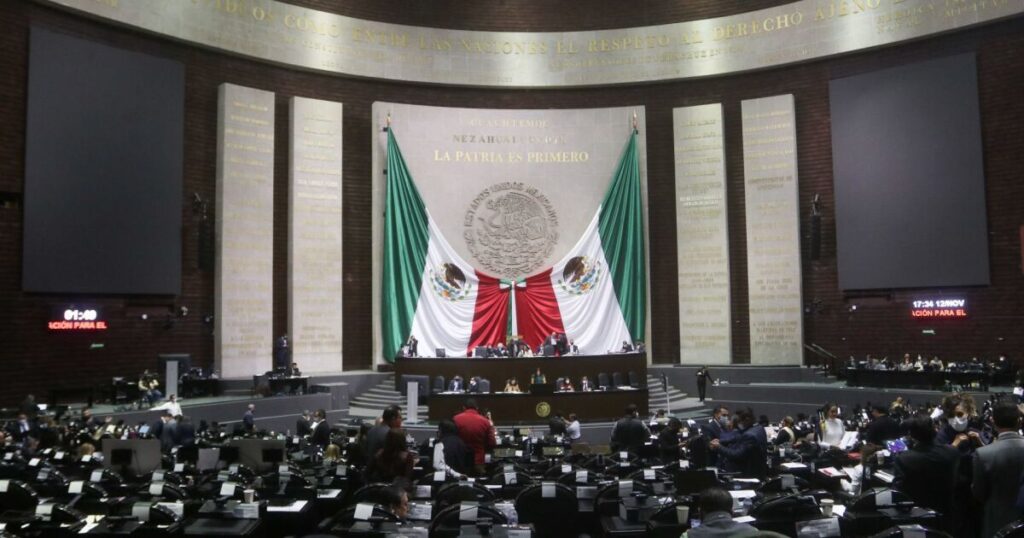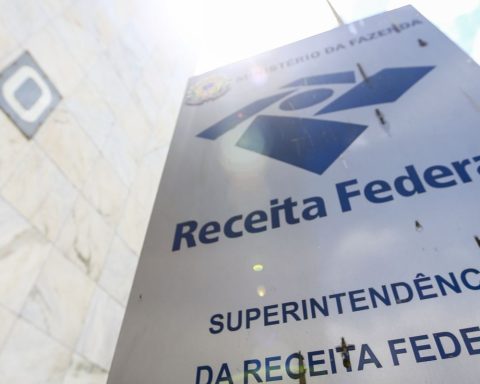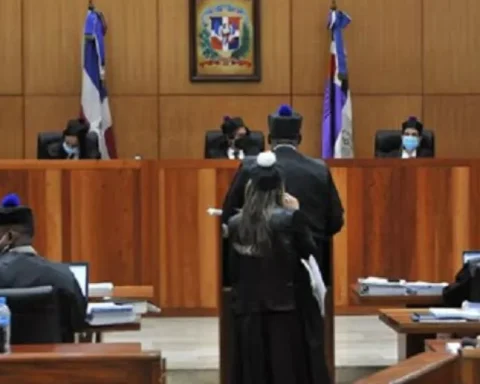Two years ago, the management of a large binational capital company in Nicaragua received an objection for several million dollars, issued by the General Directorate of Revenue (DGI). Management decided to sue the State and managed to avoid immediate payment. However, a year later, while they were still litigating before the Judiciary, they received another objection for a larger sum, and the entire legal process began again, without even reaching the end, he confirmed to CONFIDENTIAL a senior executive of the attacked company.
“We still don’t know what will happen when they audit us in 2021,” confessed the troubled administrator.
As of 2019, the regime of Daniel Ortega and Rosario Murillo intensified the fiscal harassment against businessmen, with special emphasis on the largest, be they importersproducers, merchants or exporters, to whom it imposes millionaire charges, regardless of what the law establishes.
Imposing large fines on businessmen who do not submit to the Government is not a new practice. It has happened before, and during the period of Arnoldo Alemán (2007 – 2012) it became so common that the denunciations reached the media, and society found out about the practice. However, the difference is that in this strategy under the Ortega Administration, the companies that are victims of these million-dollar charges remain silent.
CONFIDENTIAL spoke with five company managers and four union leaders, current or retired. All agreed to speak under strict anonymity, so that they would not be mentioned, the companies they work for, or the sectors in which they operate.
No matter the sector or the political affiliation (because at least two of them partially belong to businessmen linked to the Government), to be in the sights of the DGI inspectors, who are the spearhead to pressure the businessmen, which matters to the DGI is the amount of your billing.
Steal the profits, not the companies
The fiscal harassment proves that Ortega avoids repeating some of the mistakes of his first government in the 1980s, recalls one of the sources.
“At that time they confiscated the means of production. Not now: the most they have done is confiscate universities and NGOs, but they still do not dare to stay with any productive company, ”he noted.
Instead, “they are confiscating the profits of the companies –instead of nationalizing them– because they remember that when they were expropriated in the 1980s, the managers they appointed took them out of business,” he determined.
“The owners are going to fight for their companies, because nobody wants to lose their assets, there are also debts with banks, with foreign suppliers, and if you fail, you and your children would be out on the street,” he explained.
The result of this policy is that “many formal companies are about to go bankrupt” because “they themselves are promoting informality,” said one of the sources.
The impact of these million-dollar charges is that “they cause inflation, because companies raise prices as much as the market allows, and create reserves, because they know they will have to pay those fines that are being imposed on them.”
In parallel, “they cause a recession. It is true that they force you to be super efficient to save costs. You can’t save on electricity, fuel, raw materials or transportation, but you can lay off staff”, he acknowledged.
By the way, “they are creating an emerging Ortega bourgeoisie, to which they apply the fixed quota for being loyal to the regime. They reward the unconditional and punish the one they consider ‘enemy’, simply because he is not a follower of theirs. It infuriates them that we are not their instrument; that we do not play their game, ”he added.
Repairs and millionaire fines
“It is normal for the DGI to audit you to evaluate the previous year. That is their job, and if there are errors in how costs are accounted for, that can generate a objection, ”he told CONFIDENTIAL the manager of a company that, precisely, suffered one of those objections.
“What happens is that they are being more detailed, which has resulted in more fines being imposed,” he acknowledged.
Three years ago, the company he works for was assessed almost $400,000. Thanks to the contacts of one of his managers, who was previously a government official, they were able to establish a direct link with representatives of the current Administration to find a solution.
The result was that they reviewed their own accounts, refiled their tax returns, and were allowed to pay close to $80,000 “to let us continue operating,” one of the partners said.
This businessman said that they paid directly to the Treasury of the Republic, and that they preferred to settle without paying bribes because “that is getting entangled, besides that there are many devils and little holy water,” he graphed.
It was not the first time that the company faced such a serious threat to its stability and existence. “This has happened several times. It is wear and tear, but we have resolved it, because if not, we would have to leave the market”, he explained.
Although having an official who kept the line open to communicate with his former friends served this company to minimize the blow, in general, paying these repairs implies delivering more than 70% – and in some cases more than 100% – of the profits .
Three birds with one stone
In many ways, 2018 represented a watershed for the Ortega-Murillo Administration, especially when businessmen disdained the closeness with the Government, and openly criticized the murder of defenseless citizens who took part in the April Rebellion.
Some sources think that the increase in tax harassment –headed by the DGI, and complemented by the General Directorate of Customs Services (DGA), and the Mayor of Managua– is a direct response to three problems that the Government now has.
The first is the divorce with the private sectorwhom he now maintains under direct blackmail.
The second is to deal with economic recession that followed as a reaction to the violence generated from the State, which hit the collection capacity of the Government.
The third, to force certain businessmen to sit down with the Government, when it decides that the time has come to organize a new staging called ‘national dialogue‘.
“They want to force us to reach their supposed ‘dialogue’so that we go out in the photo with them, and sell that as if we are endorsing the Government”, said one of the sources.
“His intention is that you do not open your mouth in politics. Do not think against the Government. That you do not allow activism against them in your companies, while they suffocate you economically, and overcollect at the expense of the liquidity of the companies”, he listed.
This is what happened to the agro-industrial company for which he works, which received an objection for an amount close to 300,000 dollars, when a DGI auditor told them that the decision to reflect part of their production with a price different from the rest, it was “a maneuver to evade taxes”.
What this company was doing was reflecting product “A” with a different price than product “B”, given the difference in quality between the two, and although product “B” represented less than 4% of its total turnover. , “they objected to us against all of the sales,” he recalled.
“The auditors arrive with a collection goal, so they apply arbitrary methods that violate all accounting logic, and if you claim, they already have a template to resolve ‘there is no place’ for any claim,” he considered.
The millionaire friends of the Oriental
The result that the Government is obtaining is that by over-milking the companies they collect more, but in the medium and long term the result will be to “drown the formal company”.
“If they want to collect more, they should remove from the fixed quota system his millionaire friends who operate from the Orientalto expand the client base”, he recommended.
a recent report of the Central American Institute of Fiscal Studies (Icefi), showed that the 2019 tax collection closed at the equivalent of 2,212.1 million dollars. In 2021, that amount approached almost USD 2,527.3 million. The more than 315 million difference represents a growth of 14.3%.
The current budget It is calculated on the basis that this year 2378.5 million dollars will be collected, that is, 148.8 million less (5.9%) than in 2021, which suggests an exhaustion of the tax reform of March 2019.
Nobody – except those in charge of this extortion operation – has the details of how “productive” this collection strategy has been, but there are many stories of the companies that had to pay to continue operating. All with many elements in common.
The large binational capital company forced to make millionaire repairs for two consecutive years has managed to evade payment of the fines imposed, but there is a gigantic risk that the Ortega justice will force them to pay, which would be a blow against their business economy. .
The sources are confident that, despite everything, the ruling party will not give them the coup de grâce. Proof of this is that, although the fiscal threat is still in force, “they maintain our fiscal solvency so as not to paralyze us, because we need it to lend money to the banks.”
“They keep you alive, but with a gun to your head. They blackmail you. Although they don’t tell you, the owners know that they are in the hands of the State and that the company can be taken away from them because of that invented debt,” he said.
Guilds: nobody has told us anything
The tax attack against large companies is a subject of wide domain among businessmen, chambers, unions and diplomats, but at this time there does not seem to be anyone taking any action to help them get out of the fiscal ordeal to which they have been pushed.
“The government has closed all communication with Cosep, with AmCham, with the chambers… right now everyone decides how they can,” said the former director of one of those business chambers.
The manager of a chamber that brings together companies in the food industry, recalled that “in 2016 or 2017 we were reported a case of fiscal harassment, but we resolved it by making direct management with the DGI.”
Those were the times when the Superior Council of Private Enterprise (Cosep), retained the ‘right of latch’, with presidents of the powers of the State, advisers to Daniel Ortega, and government ministers.
Currently, the chamber detects “a tendency of the DGI to collect as it may, reviving rules, laws and regulations that were inapplicable. We see that they look for any excuse to collect”, said the manager.
The former director of another chamber associated with Cosep, said that fiscal harassment “is popular voice between businessmen inside and outside the country, who share the frustration caused by being victims of the mayor’s offices and the DGI, which impose charges, repairs and undue fines on them”.
“We have not received complaints or communications from any of the companies associated with the chamber, but we know that bullying exists”, shared the president of one of those unions.
His opinion is that “blackmail is not sustainable. It can be done once or twice. Perhaps with nationals, but foreigners have another reasoning. Some have litigation in Income, in customs, in court, and are focused on exhausting all legal instances. When that happens – he advanced –, they will resort to the diplomatic instance”.


















